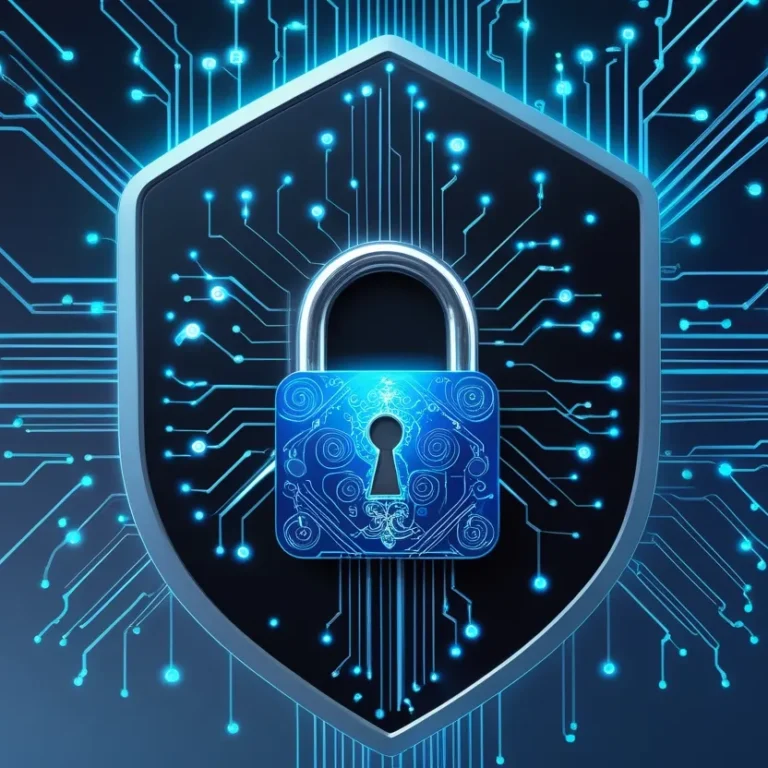How to Stay Safe from Phishing Scams on WhatsApp & Instagram
Sometimes we’re simply distracted or exhausted. When you check your phone after waking up, you discover an urgent message or email from someone you believe to be someone you know. You unconsciously click on a link, and a phishing scam is launched. Serious issues, such as someone stealing your bank account information, taking over your social media accounts, or even damaging your company’s data and services, can result from these scams.
Phishing scams on Instagram and WhatsApp are growing more prevalent and challenging to identify. Attackers can fool you into disclosing crucial information by posing as your friends, relatives, or even your boss. Ninety percent of cyberattacks begin with a phishing message, and companies are losing billions as a result, according to the CISA. With the aid of artificial intelligence, these scams are becoming more sophisticated and are currently propagating via apps such as LinkedIn, Teams, Instagram, WhatsApp, and Google Chat.
What is phishing? And How Does It Start?
Phishing scams are a technique used by hackers to fool users into downloading malicious files or disclosing personal information like passwords or bank account details. It usually begins with a convincingly fake email or message. The hacker only needs to click on a malicious link to get access to your device or network. This is how most phishing scams begin.
There are two types of phishing scams. The first is general, like a wide net trying to catch everyone. The second, called spear phishing, is more targeted and makes use of a single person’s personal information to give the scam a more realistic appearance.
Phishing scams are also becoming more common on WhatsApp and Instagram. Hackers may send you messages that seem to be from a friend or business, but they are fraudulent and dangerous.
Even large companies like Reddit, Twilio, and Cloudflare have been attacked using phishing techniques. Sometimes, a hacker only needs to trick one person at home to seriously disrupt an entire business.
Cybersecurity experts from the US, UK, Germany, Japan, and Australia say that phishing has become a serious threat. Everyone, including businesses, must therefore continue to exercise caution.
Parental impersonation scams
This is one of the most common WhatsApp impersonation phishing scams. In this phishing scams, you receive a message from someone pretending to be your son, daughter, or family member asking for help, typically money.
They could say things like:
“I lost my phone number; this is my new one.”
“I’m in trouble, so I need money quickly.”
“Please don’t tell anyone; I’m embarrassed.”
Some scammers even impersonate your real child when they call you using artificial intelligence (AI) voice tools. This gives the scam more legitimacy.
Safety tip: Always call a family member to confirm the message.
Create a secret family password for emergencies. Only your immediate family should know about it.
Don’t send any cash or personal information until you are fully sure.
Wrong Number Scams
In wrong-number WhatsApp phishing scams, a scammer messages you pretending it was sent to the wrong person. For example, they might say:
- “Hi, is this John?”
- “Are we still meeting tomorrow?”
- “Oops! Sent to the wrong number.”
Their real goal is to start a friendly chat and make you trust them. Later, they might try to scam you by asking for money, starting a fake relationship (romance scam), or offering fake investment deals.
How to stay safe:
- If you get a message from someone you don’t know, don’t reply.
- Block and delete the number right away.
- Never share personal info with strangers, even if they seem friendly.
Dramatic WhatsApp Phishing Scams Examples
Sometimes, cybercriminals try to trick WhatsApp users into swiping their bank or personal information. Such scams are dangerous because they sound real. One of the most dramatic ones is the WhatsApp missed call scam.
A. Fraudulent WhatsApp Missed Calls
Recently, a lot of users have missed voice or video calls from unknown numbers with foreign country codes (such as +44 or +62).
How it works:
After the missed call, the con artist texts you with:
“Sorry, wrong number.”
“Please call back, it’s urgent.”
They may pose as a friend, a family member, or even a representative from a trusted organization.
The scam message usually asks you to share a code or private information, like your account password or bank details.
The scammer tries to use your curiosity or worry to trick you into giving away this important information.
If you share these details, the scammer can hack your WhatsApp account. Then they might:
- Send spam messages to others,
- Scam your contacts, or
- Steal even more personal information.
So, always be careful and don’t fall for the WhatsApp phishing scams.
B. WhatsApp QR Code Scam – Easy Explanation
You receive a message stating that you have won a prize or a lottery. However, to claim the prize, the perpetrator instructs you to send some money ahead.
Once you have agreed, they send a QR code to scan. In phishing scams, your bank account information is shared unknowingly. The scammer then robs your money from the account.
What to do
Scanning a QR is similar to clicking a malicious link. Always verify who shared the QR code. Also, keep in mind:
You do not have to scan any code to get money.
Be cautious not to become a victim of the WhatsApp QR code scam.
Always Check Through a Phone Call
If you receive a request from friends or relatives for money, don’t send it immediately. Call them first to ensure the request is genuine.
If the name of the bank account appears unusual, be very cautious — it might be a trick.
Use Tools to Verify Suspicious Information
Use apps such as the Scameter or Scameter+ (Hong Kong Police) to verify suspicious phone numbers, emails, or bank accounts.
Stay Alert – Anytime, Anywhere
Stay alert and cautious at all times. If it does not feel right, believe your instincts. You may contact the Anti-Deception Coordination Centre (ADCC) at 18222 for assistance.
Think It’s a WhatsApp Scam or an Instagram Scam?
If you suspect a scam, call HSBC:
HSBC Global Private Banking: (852) 2233 3033
HSBC Premier Elite: (852) 2233 3033
HSBC Premier: (852) 2233 3322
Other Personal Banking Customers: (852) 2233 3000
Your safety is important. Stay smart, stay secure from WhatsApp scams.
Conclusion
As technology enters our everyday life, being safe on the internet is extremely important. Knowing how cybercrooks deceive individuals can assist in keeping you safe and secure, including your financial and personal data.
As more and more WhatsApp scams occur, all of you must learn how to avoid these phishing scams. With knowledge of WhatsApp phishing scams and a few simple precautions, you can keep yourself and your information safe from misuse. Be cautious and remain safe.
If you want more informative content like this must visit Chillzone123
FAQs
What if you click on a suspicious WhatsApp link?
Clicking on a suspicious WhatsApp link can be extremely dangerous. It can take you to websites that attempt to steal your personal information, passwords, or banking details. This is a kind of cyber attack when hackers send pretend messages to deceive individuals.
Never click on a link from someone you don’t know or messages that appear unusual. These links can damage your phone or assist an individual in taking over your WhatsApp account.
What is WhatsApp phishing?
WhatsApp phishing scams are a hoax in which hackers send spurious messages to trick you into divulging personal or financial details. These messages might be real and pressing, but they are designed to deceive you.
In WhatsApp phishing, you could be asked to click on a link, verify yourself, or provide an OTP. If you do it, fraudsters can hack your account or steal your funds.





Your point of view caught my eye and was very interesting. Thanks. I have a question for you. https://www.binance.com/fr-AF/register?ref=JHQQKNKN